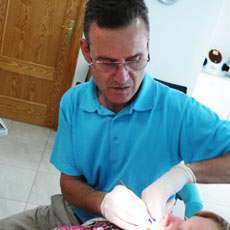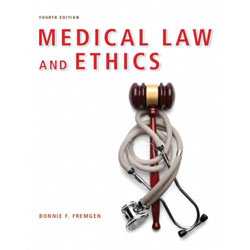Dental Malpractice and a Dentist's Liability
As a dentist, I have mixed feelings about dental malpractice. On the one hand, there is no doubt that a small minority of dentists DO behave unprofessionally from time to time. Every profession has its black sheep.
But on the other hand, I do truly believe that most dentists try very hard to do their best. Dentistry is NOT an exact science. It can be very difficult to predict how a certain treatment will turn out.
At times, it can be impossible to say if a treatment will be successful or not. Will this root canal treatment work? Will that dental implant heal smoothly? Things do not always go as planned.
Unfortunately, when a treatment fails, the dentist can sometimes be blamed unfairly.
So it's important to look closely at the facts, and try to work out if a problem was caused by genuine dental malpractice, or whether it was just bad luck. Stay calm, and stick to the facts.
You may shoot yourself in the foot and destroy any chance of a successful legal action if you "add" to the facts, or make something up. If your "invention" is discovered by the defending attorney, your entire case may fall apart. So do yourself a favor! No matter how worked up you are, how badly you feel you've been treated, DO NOT make things up. STICK TO THE FACTS.
Dental Malpractice
There are four main areas that tend to occur most often in dentist malpractice and dentist liability issues. There are others, too, but here's a rundown of the main ones:
- The first area of malpractice is wrong diagnosis. This means that the dentist has either failed to recognize a condition, or else he has confused it for something else. The most common "failure to diagnose" is gum disease. A lot of people are walking around with significant gum disease that their dentist has not told them about.
- Failure to detect and diagnose a tumor in the mouth is less common, but may happen.

- The second area is to do with dental implants. There are several stages of dental implant treatment, and things can go wrong at any point. Most problems can be traced back to bad planning, where the dentist does not plan the implant treatment properly.
- He needs to make sure that there is enough room for the implant, and that he doesn't damage any nerves during the treatment. These days, most dental implants need a 3-D computerised scan of your jaw. If your dentist does NOT arrange for a 3-D computerised scan of the area he wants to do the implant, he may be "negligent".
- The third area of malpractice involves failed root canal treatment. There are a number of things that can go wrong during root canal therapy. Failure to detect and diagnose a problem like a cracked root can be time-consuming for the patient as well as the dentist. But much more basic things can go wrong, such as the dentist missing one of the root canals during his treatment, or not filling all of the root canals properly.
- The fourth area covers the general area of surgery errors. For example, you may be left with a numb tongue after a wisdom tooth removal, or numb lip after implant placement. If you were warned about this BEFORE the surgery, then you have accepted the risk. But if you were NOT warned, then you may have a case against the dentist.
Two things that you should ALWAYS have, especially for more involved or expensive treatment:
The dentist should always give you a written estimate of the treatment costs. He has an obligation to tell you what the treatment will cost before he starts!
He also MUST have your informed consent to the treatment. This means that he must have explained the benefits, the RISKS, and the ALTERNATIVES to you, in terms that you can understand. It's best if it is written, not just verbal. You should both have a copy, signed by both of you.
If you think you have a dental problem resulting from dentist malpractice, your first step should be to write everything down to do with your treatment.
Start at the very beginning, from your first visit to the dentist' office. Go through it day by day. Include everything that was said, to best of your memory. Do not make anything up, and don't exaggerate! Stay calm, and stick to the facts.

Then you should contact the dentist to discuss your problem. Again, state the facts as you see them, in a calm manner. Then see how the dentist reacts, and what he plans to do about the problem. Most times, he will offer to re-do the treatment at no charge.
However, if it's something which is not easily fixed, such as a numb tongue or extraction of the wrong tooth, then your next step is to find a dental malpractice attorney. He will examine the issues that you raise, and see if there might be a case for the dentist to answer.
Most complaints are the result of a misunderstanding or bad communication, and are quickly resolved. A small minority of complaints DO involve real dental malpractice, and these are taken further by the lawyers and dental registration authorities.



